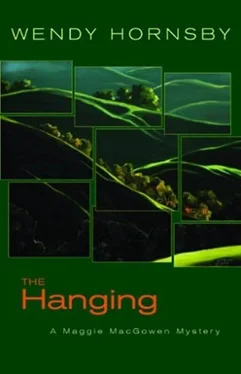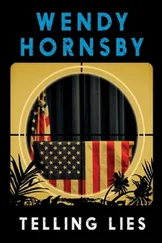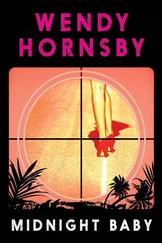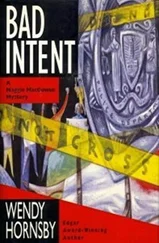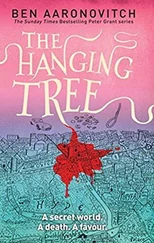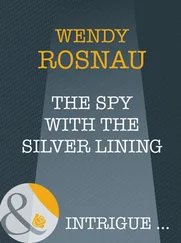“The sculpture is being assembled on a frame in one of the Art Department galleries,” I told him. “It’s almost twenty feet long from top to bottom. Before the hanging ceremony, the assembled piece will be wheeled over and put in place in the stairwell, the cable attached, and fwoop , up it goes.”
“Too clever,” he said, moving his focus from the apparatus down to me. “Let me guess, you’re making a film.”
“Sly: The Artist and His Work ,” Joan said with unexpected enthusiasm. “We’re going to premiere it at the hanging ceremony. We’re very excited.”
“Another guess,” he said. “You want some ‘before’ footage?”
“That’s right.” I reran the images I had shot of the empty stairwell. Disappointed, I turned off the camera and put it away.
The light was too low. I would need to come back late in the day when I would have the afternoon sun shining directly in through the big glass front doors, if there was any sunshine that afternoon.
As I started up, Kate came down to meet me. She slid her hand around my elbow and leaned her head close to mine.
“Mags,” she said. “Just a word of caution. When we’re in there, remember that Holloway doesn’t want to talk to us. And when he doesn’t like a topic, he does this feint maneuver: drops a big name like a bomb hoping to dazzle folks into forgetting the business at hand. You know the kind of thing, ‘As Bill Clinton told me one day on the back nine of the Annandale…’ It’s just bait to get people to ask about his time in Congress and the people that he knew. If he tries to pull that shit, don’t let him get away with it or we’ll never get him back on topic.”
“Forewarned is forearmed,” I said.
I heard loud male voices coming from somewhere above, emphatic voices, maybe, rather than angry. The only distinct words I heard were, “There are limits, Park, there are limits.” A man came out of the president’s office looking grim. He was round, mustachioed, wore a bad toupee; I had never seen him before. When he saw Joan, he switched on a perfunctory smile.
“Hello, Joan.” He held out his hand toward her. “Headed in to see Park?”
“Yes,” Joan said. “Will you be around this afternoon? There’s something I want to discuss with you.”
“Let me guess, does that something have a dollar sign at the beginning and a lot of zeroes at the end?”
“I’m not asking you for a donation,” she said, returning his smile. “This time.”
Max reached the top and Joan introduced him.
“Max, I’d like you to meet Tom Juarequi, the chair of the college Board of Trustees. Tom, this is Max Duchamps.”
“Pleasure to meet you, sir,” Juarequi said. He moved in closer to Max as he wagged his head toward Joan. “Watch your pockets around this one. Every time I see Joan, it seems I walk away a poorer man.”
“But richer for your generosity,” she countered.
“So you say,” he said. Then he dropped his chin and lowered his voice. “Sorry, I haven’t left Park in a very happy frame of mind for you. If we can’t plant a money tree in one of his landscaping projects, I don’t know how we’re going to get through this fiscal year.”
Kate introduced me to him when we reached the landing.
“Ah, you’re our movie maker,” he said, offering his hand. “It’s a real feather in our cap to have you on staff this semester. I hope you can be persuaded to stay around longer.”
“We’ll see,” I said.
He seemed to be hovering. An attractive woman came out of Holloway’s office and I understood that he had been waiting for her to finish with Holloway. She was introduced as Melanie Marino, another member of the Board of Trustees. She looked no less grim than Juarequi had when he walked out of that same door, but was not as quick as he to shed her mood. She was cordial to us during introductions, but only just. The two Board members were on their way to another meeting where yet more unhappy fiscal news would be discussed, and she seemed eager to get it over with. I did not envy them their job.
As we filed into the president’s conference room, Park Holloway entered from his adjoining office. He must have overheard the conversation in the hallway, but declined to join in it.
Holloway was a compact man with a full head of silver hair. With his great haircut, the beautifully tailored blue pinstriped suit, perfect skin and straight white teeth, he looked as if he’d been professionally waxed and polished. Untouchable.
As he greeted us, the politician’s experience working a room was manifest. But even as he shook each hand and offered a targeted remark, his attention was clearly focused on Uncle Max. He was telling me how much he was looking forward to the student film festival in April, but he was already extending his hand toward Max.
Uncle Max was a Great White among Southern California’s legal sharks who regularly swim in the ponds of celebrity misbehavers. TV talking heads loved Max, and he loved them right back, so it was no surprise that Holloway recognized him.
“You’re Max Duchamps?” Holloway asked, not unfriendly but certainly curious.
“Based on the face I saw in the mirror when I shaved this morning,” Max said, returning his grip, “I would have to say that’s most likely the case, yes.”
“Welcome, sir. Welcome.” Holloway let him take his hand back.
I saw Holloway raise his eyebrows in puzzlement, maybe in concern, as Max put a hand on my shoulder and guided me to a seat at the far side of the big table. Max always sat with his back to the wall and with the closest exit within his line of sight.
“Are we all here, then?” Holloway asked, looking at Kate.
“Lew Kaufman is coming,” Kate said. “It wasn’t easy getting to the front door.”
“Ah, the demonstrators.” With a sweep of his hand, he gestured for everyone to be seated. “Please.”
He took the chair at the head of the massive custom-built table, a table so large that it had to be assembled inside the room. After smoothing the front of his jacket and checking the knot in his yellow tie-nervously, I thought-with a vague sort of smile on his face, he watched the others settle in as a general might assess the opposition taking up positions around a battlefield.
Kate, head of the Academic Senate, chose to sit at the foot of the table, facing Holloway across the vast, polished walnut no-man’s-land. Joan claimed the chair to Holloway’s immediate right, the seat of honor if this were a formal banquet. She smiled in a perfunctory way at him before turning her attention to the placement of her file folder on the table squarely in front of her.
We heard heavy footsteps pounding up the stairs and Lew Kaufman, breathless, shambled in.
“Sorry, sorry, sorry.” Lew nodded his greetings and apologies to everyone. “Damn nuisance out there. Don’t get me wrong, I support the effort. Just very happy when we finally got everyone on the buses and cleared out. Had to wait for a final head count, insurance, you know. Hate to leave someone downtown. Hello, all. Hello.”
He leaned across the table to shake Max’s hand, leaving behind a smear of something on Max’s palm that looked like terra cotta.
“Max, God, good to see you, man. Thanks for being here. Means a lot to the boy, you know. A lot.”
Noisily, Lew folded his lanky frame into a chair beside Kate, thereby declaring his allegiance to the faculty camp. He rested his elbows on the well-waxed tabletop, rested his chin on his hands, and glared at Holloway, who declined to meet his gaze.
The fifth campus regular to enter was the very ill-at-ease-appearing Hiram Chin, the interim academic vice president. Chin slipped in through the president’s private office door, a familiar there, and offered handshakes and greetings to everyone before he took the seat on Holloway’s left flank.
Читать дальше
